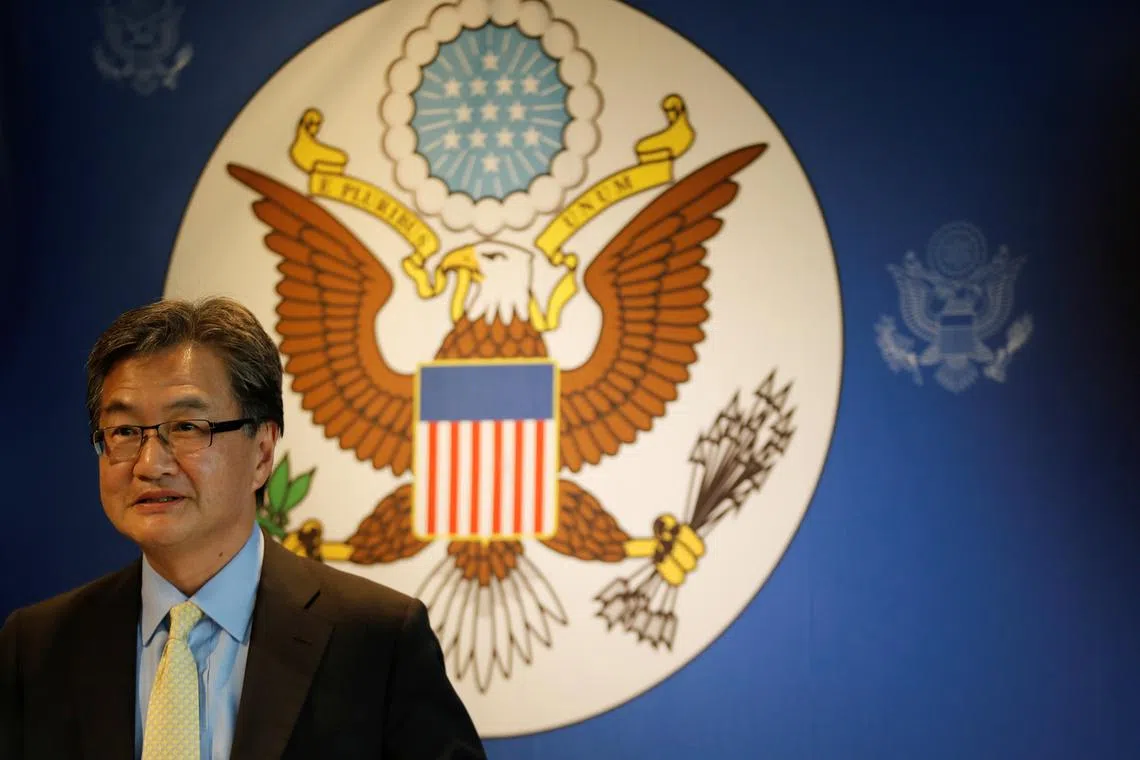US official says South Korea’s watchlist status due to mishandling of lab data
Sign up now: Get ST's newsletters delivered to your inbox

Mr Joseph Yun, acting US ambassador to South Korea, said the watchlist status does not have wider implications for cooperation between the two allies.
PHOTO: REUTERS
Follow topic:
SEOUL – South Korea was placed on a US Department of Energy (DOE) watchlist because visitors to its labs mishandled sensitive information, Mr Joseph Yun, acting US ambassador to South Korea, said on March 18.
The DOE confirmed this week that it had designated South Korea a “sensitive” country
South Korea’s acting President Choi Sang-mok was to be briefed on March 18 by vice-ministers on their response to being listed, and Industry Minister Ahn Duk-geun is expected to ask the US Energy Secretary to remove South Korea from the list of sensitive countries during his visit to the US this week, according to government sources.
Speaking to the American Chamber of Commerce in Korea, Mr Yun said the designation was limited to the department’s facilities, and does not have wider implications for cooperation between the two allies.
“South Korea was put on this list because there was some mishandling of sensitive information,” he said.
He did not elaborate on the issue, but said in 2024, there were more than 2,000 South Korean students, researchers, and government officials who visited US labs.
“It is not a big deal,” he said. “There were some incidents because there were so many South Koreans going there.”
The DOE said in a report in 2024 that it had fired a contractor who tried to board a flight to South Korea with “proprietary nuclear reactor design software” owned by the Idaho National Laboratory.
That individual, who was being investigated by US law enforcement, had been in contact with an unnamed foreign government, the report said, without identifying the country.
It was not immediately clear if that case contributed to the designation, and the DOE and US State Department were not immediately available for comment.
The US decision to add South Korea to the list was taken by the previous administration of then US president Joe Biden, a DOE spokesperson has said.
The designation, which placed US-allied South Korea on the lowest tier of a list that also includes China, Taiwan, Israel, Russia, Iran and North Korea, sparked controversy and debate in Seoul, which said it had not been notified by Washington.
It came as South Korean officials increasingly raised the prospects of some day pursuing their own nuclear weapons, and in the aftermath of a shock martial law in December that threw the country’s leadership into crisis.
Seoul’s foreign ministry said on March 17, however, that the DOE decision was understood to have been due to “security-related matters” linked to a research centre, and not South Korea’s foreign policy.
The DOE spokesperson said the designation, which is due to go into effect in April, placed no new restrictions but mandates internal reviews before cooperation or visits to the listed countries. REUTERS

